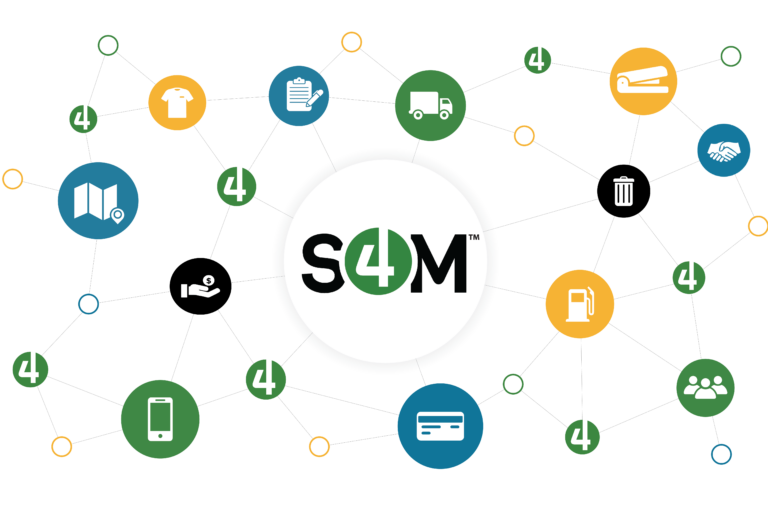
By WEX Corporate, Originally Posted April 21st, 2025
Fraud prevention goes beyond implementing the right technologies. Providing the right kind of training to your employees helps educate and inform them, particularly drivers, about fraud risk and its consequences to both themselves and to your business. Helping employees understand the ways that fraud puts your business at risk of reputational damage and lost revenue will be a great first step to reducing the amount of fraud you’re experiencing. Additionally, employees need to hear it from you that willingly participating in fraudulent activity could lead to termination of employment.
Read on to learn five fraud prevention tips to help strengthen your safety protocols and reduce fraud across your fleet operation.
5 tips and fraud prevention strategies for effective training
Fraud prevention is about getting and staying ahead of fraudulent activity. The goal being to avoid larger, more costly activity from happening to keep your revenue goals on track.
These five tips highlight strategies and tactics to help bolster your fraud detection and prevention efforts—and your risk management strategy as a whole—through fraud awareness, education, and clear policies.
Tip # 1: Develop a comprehensive fraud training course
If you don’t have a fraud prevention training program in place, developing one is a great place to start. The training program should be detailed, covering all types of fraud including fuel card fraud, maintenance fraud, and timesheet fraud.
If you can, pull real-world examples of past incidents from your own business to drive messages home and illustrate the potential consequences.
Tip # 2. Outline crystal-clear fraud policies and procedures
Ensure that your policies and procedures are aligned with your business’s stance on and tolerance for fraud. Make sure to highlight approved methods and expectations for fuel purchases, vehicle maintenance, and reporting of work hours among other business aspects. Once you’ve established or updated your policies, ensure that all drivers are aware of and understand them by incorporating them into your training material and/or handing out printed copies to all employees.
Tip # 3. Train drivers to use the fraud prevention technology you’ve implemented
Implementing telematics and GPS tracking systems will help you monitor vehicle usage and driver behavior—and your employees should be familiar with how they work. For example, drivers should know how to properly and ethically use their fuel cards, where approved fill-up locations are, and what kinds of purchases are off-limits.
While driver-level card controls can manage much of this automatically, educating drivers on the do’s and don’ts of company purchases is a great additional safeguard.
On the business side, fleet managers should:
- Regularly review telematics data, fuel management systems data, and any other sources of data to identify patterns that may indicate fraud.
- Use analytics to spot anomalies such as excessive fuel consumption, unusual route deviations, or inconsistent maintenance records.
Fraudsters are always looking for new ways to circumnavigate even the most sophisticated security measures, which makes it important to stay one step ahead of them.
Tip # 4. Promote a culture of trust and transparency
Once training programs and policies are in place, don’t stop there. Imbue your business’s core values into your workplace culture. Encourage open communication and create an environment where drivers feel comfortable reporting fraud and other suspicious activities. To do this, consider establishing a confidential reporting system for drivers to report suspected fraud without fear of retaliation.
Tip # 5. Reward honest behavior
Finally, jobs well done shouldn’t go unnoticed. As even the most effective fraud prevention training programs can only reach so far, fleet managers should find ways to recognize and reward employee honesty and good work. A recent OnePoll survey found that nearly half of respondents left a job recently due to feeling underappreciated. And an additional 65% said they’d work harder if they felt their contributions were noticed by management. Recognition means something to employees and it’s not that hard to do. You can use an established incentive program or create a new one that rewards drivers who consistently adhere to policies and demonstrate integrity.
Perks and bonuses add an element of personal gain that can further encourage honesty; however, if you’re on a budget, simple recognition can go a long way. If you go the recognition route, consider publicly acknowledging drivers who report fraud or suggest improvements to prevent it.
Combine the right tools with reliable training
Equip your fleet with the right tools to fight fraud effectively. With WEX, enjoy innovative telematics tech, GPS tracking, and highly controllable fuel cards that encourage ethical behavior and allow fleet managers to trace fraud back to its source when issues arise.
Build a better fortress against fleet fraud—get started today.
All fleet cards are not the same, and different types of fuel cards suit the needs of different kinds and sizes of businesses. View WEX’s fleet card comparison chart to see which fleet fuel card is right for you.
WEX speaks the language of small business operators. Whether you’re looking to modernize your insight and reporting efforts, save on fuel costs or take advantage of the latest GPS tracking technologies, WEX offers solutions to simplify the business of running a business. To learn more about WEX, a dynamic and nimble global organization, please visit our About WEX page.
If you’re a Savings4Members business and are interested in the WEX Fuel Program, contact your dedicated Savings Consultant or visit our Contact Us page to get started. Already using a WEX fuel card but not through Savings4Members? You could be missing out on additional savings—let us help you maximize your benefits and lower your fuel costs even further.








